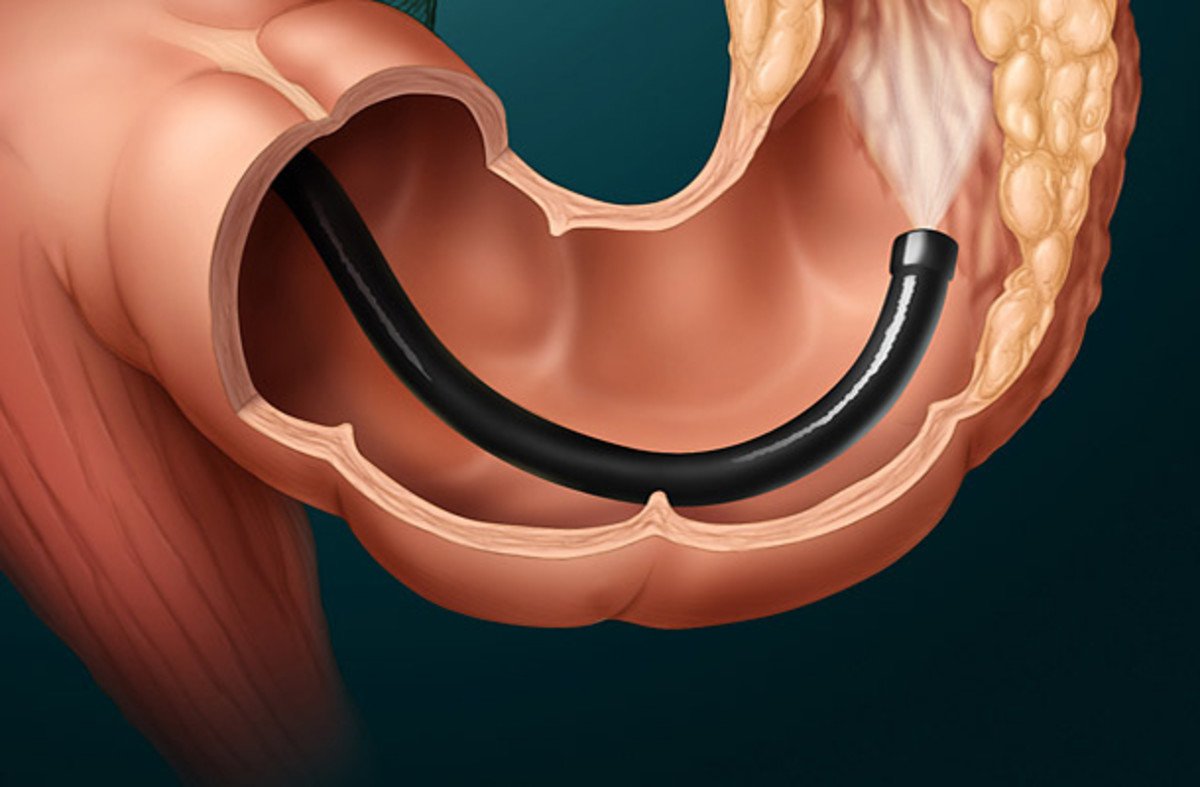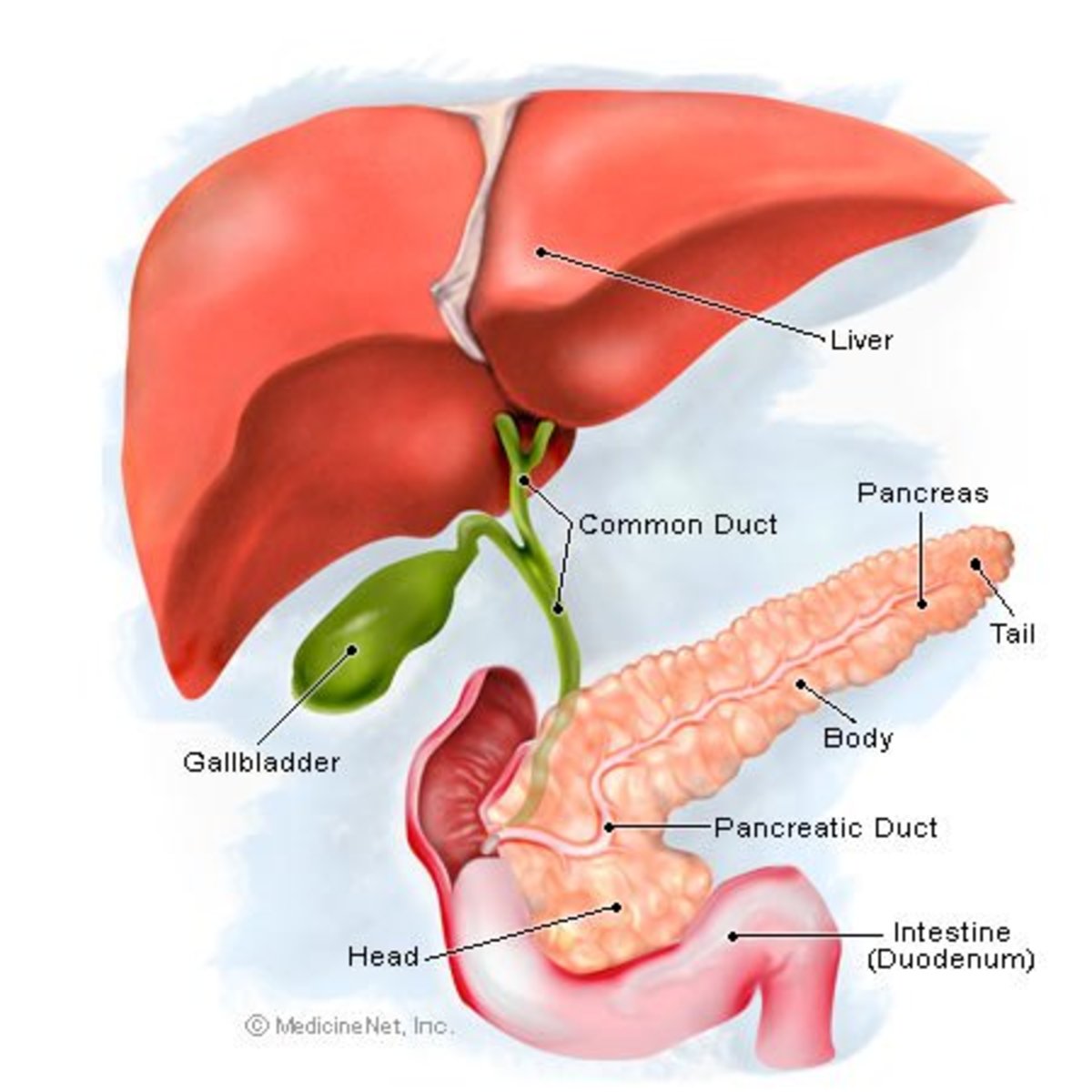Acid Reflux - Causes, Symptoms, Treatments

Acid Reflux Related Links
- Heartburn & Acid Reflux Remedy Report
- Understanding Acid Reflux
A look at acid reflux, its underlying causes, its treatments, and the best ways to bring relief back to your life. - GERD
MedlinePlus brings together authoritative information from NLM, the National Institutes of Health (NIH), and other government agencies and health-related organizations to provide current GERD information. - Gastroesophageal Reflux Disease
Wikipedia page on Gastroesophageal Reflux Disease, written collaboratively by volunteers from all around the world.
Acid Reflux Basics
Let's begin this examination of acid reflux at the beginning ... with heartburn. Almost everyone experiences heartburn at one time or another. Its general symptoms are a painful, burning sensation in your chest or throat. This is the result of stomach liquids that have backed up into the esophagus, which is the tube that carries food from your mouth to your stomach.
When this condition occurs only occasionally, it's referred to as heartburn. However, when it begins to occur more regularly, as often as twice a week or more, you may be experiencing a more serious condition commonly referred to as GERD (Gastroesophageal Reflux Disease) or acid reflux. Just as with heartburn, acid reflux is the result of the liquid contents of the stomach rising back up the esophagus. Normally, the lower esophagus sphincter, which functions something like a valve, prevents this from happening. However, when the sphincter is weakened and unable to close properly, or is unable to resist the pressure building in the stomach, it may not be able to prevent unwanted backflow. For example, when you belch, the air pressure in your stomach has become too much for your esophagus sphincter to hold back, so the valve has opened and released the pressure. In the simplest of terms, therefore, the primary cause of acid reflux is a weaken esophagus sphincter.The pain you experience results from stomach liquids coming in contact with the sensitive lining of your esophagus. These liquids are made of hydrochloric acid and pepsin, which are secreted by the stomach in order to help with the digestion of food. In addition, they may also contain small amounts of bile. This is a digestive fluid created in your liver. Often, acid reflux is accompanied by bile reflux (a condition when bile rises up from the small intestine to the stomach and into the esophagus, which usually results in a burning sensation in the upper abdomen). Most acid reflux sufferers become concerned and begin looking for a solution to their condition because of the pain created when the stomach acids get into their esophagus. However, the real concern of acid reflux is the potential long term damage to the esophagus. Over time, this can have a corrosive effect which can create scar tissue and narrow the esophagus lining. This, in turn, can create problems with swallowing. Prolonged cases of acid reflux may also affect your voice, cause chronic coughing, contribute to snoring and sleeping issues, and even potentially lead to Barrett's oesophagus, in which the cells lining the esophagus become more prone toward cancer. The good news is that most people with acid reflux never develop the most serious of these complications.
Acid Reflux Disease
The Everyday Causes (Or More Appropriately, Triggers) of Acid Reflux
Food is often the primary cause behind a weakened esophagus sphincter. So let's take a look at some of the more likely culprits. First, however, it's worth noting that everyone reacts differently to these foods. I mention them here because they are often sited as aggravating an acid reflux condition.
With that said, you may have no adverse reaction at all to, let's say, tomatoes, while you have an instantly noticeable reaction to chocolate. Everyone is different. In addition, while these may aggravate your condition, eliminating them won't likely eliminate your acid reflux. You'll have to take additional steps as well, which we'll get into a little later.Fried And Fatty Foods (Fast Food) - These are foods that are generally more difficult for your system to digest. As a result, they spend more time in your stomach, which aggravates the pressure and increases the potential for a breach of the esophagus sphincter.Tomatoes - Tomatoes and tomato-based products are high in acidity and tend to make the sphincter a little lazier. Oranges, lemons, grapefruits, and cranberries, as well as citrus juices also fall into this category.Caffeine - Coffee, tea, and carbonated beverages are all high in caffeine, which tends to relax that same old lazy sphincter and allow your stomach juices to rise. Keep tabs on how much caffeine you take in regularly and its intake in relation to your acid reflux episodes. Chocolate - Chocolate is a major offender. It contains a natural compound called theobromine, which has similar effects as caffeine and causes the esophagus sphincter to relax. You might still be able to try a little chocolate occasionally, though if you're like me it's never just one piece. Alcohol - Alcohol increases the manufacture of stomach acid. It also relaxes the sphincter. While you don't need to eliminate alcohol altogether, you might be wise to reduce your intake, perhaps dilute your drinks with water or club soda, and avoid hard liquor.Dairy - Dairy products made from whole milk can aggravate your acid reflux. Sour cream, ice cream, cottage cheese ... these are all examples of what to watch out for. Non-fat dairy products and most low-fat dairy products should not be a problem.For years now, it was thought that many of these foods were acidic and it was the acidity that contributed to your acid reflux. However, recent studies have indicated that it's not the acidity, but the ability of these foods to decrease the effectiveness of the sphincter that contributes to the condition.Now that we've listed those foods you should keep an eye on, let me mention two behaviors which can dramatically aggravate your acid reflux. You already know this first one, I bet, but it's really something you should watch: overeating. Too much food in your stomach places additional pressure on the lower esophageal sphincter, which in turn, causes the stomach acids to rise. You're probably aware of this second one as well ... don't eat within three hours of lying down. So many of us eat late in the day and end up going to bed before our food is digested. When you're in a prone position, it's much easier for the stomach contents to come up.
Acid Reflux Symptoms (Or You'll Know It When You Feel It)
The most commonly reported symptom of acid reflux is a burning sensation centered near the top of the stomach. This burning sensation may also appear in the throat. Often, you'll actually feel the burn of the stomach liquids rising up your esophagus (I used to wake up at night from the sensation). You may also experience a sour taste in your mouth, accompanied by bad breath. You may experience pain or discomfort in your upper abdomen. Sometimes, you may experience nausea after eating.
On the less common side, you may develop a dry chronic cough accompanied by hoarseness or wheezing and a need to clear your throat. You may experience trouble with swallowing, or a chronic sore throat, or even a case of the hiccups which just won't go away. In rare cases, you may experience chronic nausea that persists for weeks or months. When symptoms become this serious, you should be seeing your doctor in order to eliminate the possible causes (such as an ulcer or and obstruction) and identify the true culprit. Finally, in some instances the discomfort of heartburn or acid reflux in the chest can be so intense that you'll feel as if you're experiencing a heart attack. Don't write such discomfort off to acid reflux. Make the trip to the emergency room and let a physician make the diagnosis. Better safe than sorry.Acid Reflux Treatment
Acid Reflux Related Books
Acid Reflux Treatments
Most acid reflux sufferers turn to over-the-counter antacids first. These can be found in liquid form or in tablets. Antacids are generally designed to work quickly at reducing the acid in your stomach and can be quite effective for relieving minor acid reflux episodes.
They are not, of course, a cure. They simply alleviate the symptoms for the short term. And they can also result in constipation, stomach cramps or diarrhea. If your acid reflux symptoms persist, or you find yourself continually turning to antacids, it's time to visit your doctor.
The most common acid reflux medications fall into two categories ... acid suppressants and the proton pump inhibitors. An acid suppressant helps to reduce the production of acid in the stomach. The brand names that you've probably heard before include Zantac, Pepcid, Tagamet, and Axid.
The proton pump inhibitor works to minimize the secretion of acid into the stomach by interacting with the cells of the stomach wall. Common examples, that you're likely somewhat familiar with, include Nexium, Zoton, Protium and Paret.
Apart from taking medications, there's your diet. You'll want to avoid those foods I've mentioned above which tend to weaken the esophagus sphincter. You'll want to avoid over indulging by eating smaller, more frequent meals throughout the day. Limit your alcohol. Allow yourself at least three hours before going to bed after eating.
In Conclusion
While acid reflux rarely becomes so severe that it does major damage to your esophagus, even in minor cases it can be painful, disrupt your sleep cycles, and make your life miserable. The good news is that you can minimize these symptoms by watching how much you eat, the foods you eat, when you eat them, and visiting with your physician if the symptoms become too persistent.
Medical Disclaimer
This document has not been evaluated by the Food and Drug Administration, and it should not be used to diagnose, treat, cure, or prevent any disease. It is provided here to be used for educational and information purposes only. Please, always consult your doctor or health care specialist if you are in any way concerned about your physical wellbeing.








